The surreal vision of René Magritte
Delve into the thought-provoking art of René Magritte, the enigmatic Belgian surrealist, so influential to my own creative journey.
share this!
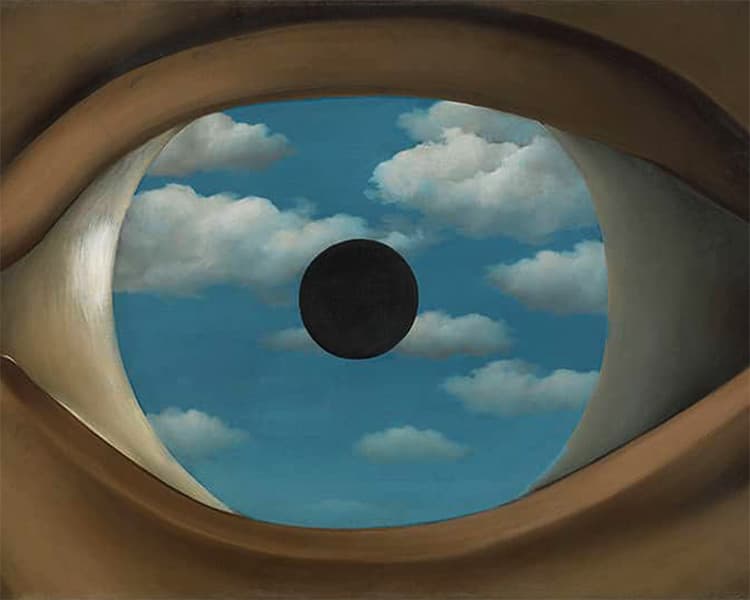
René Magritte, the enigmatic Belgian surrealist, captivated audiences with his thought-provoking artworks, blurring the lines between reality and illusion. Born in 1898 in Lessines, Belgium, Magritte’s journey into the art world began at a young age, eventually leading him to explore the realms of René Magritte’s surrealism. Welcome to the surreal vision of René Magritte, one of my personal favorite artists, and therefore great influence.
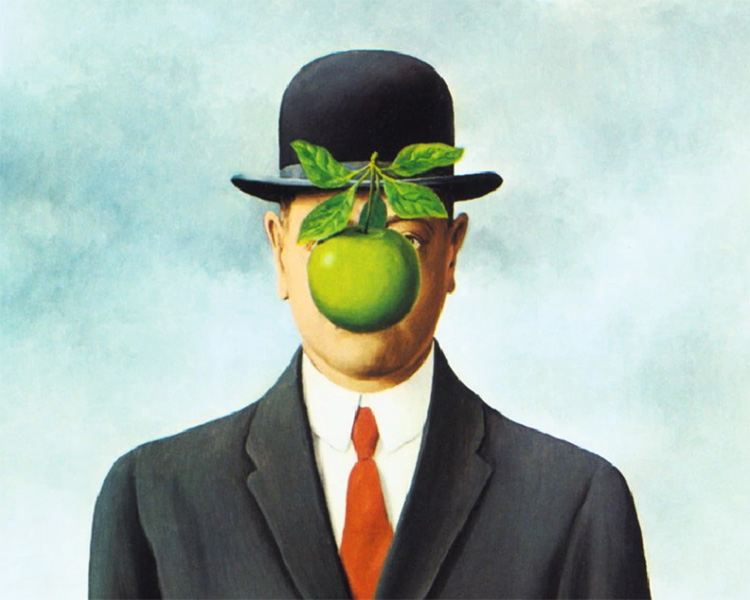
Magritte painted scenes that defied logic and challenged perceptions. His distinctive style often featured architectural structures juxtaposed with unconventional elements, such as floating rocks or mysterious figures. These pieces are the ones that particularly caught my interest. One of his most iconic works, “The Son of Man,” depicts a suited man with a bowler hat, his face obscured by a floating green apple—an image that continues to intrigue and inspire viewers worldwide. Iconic.
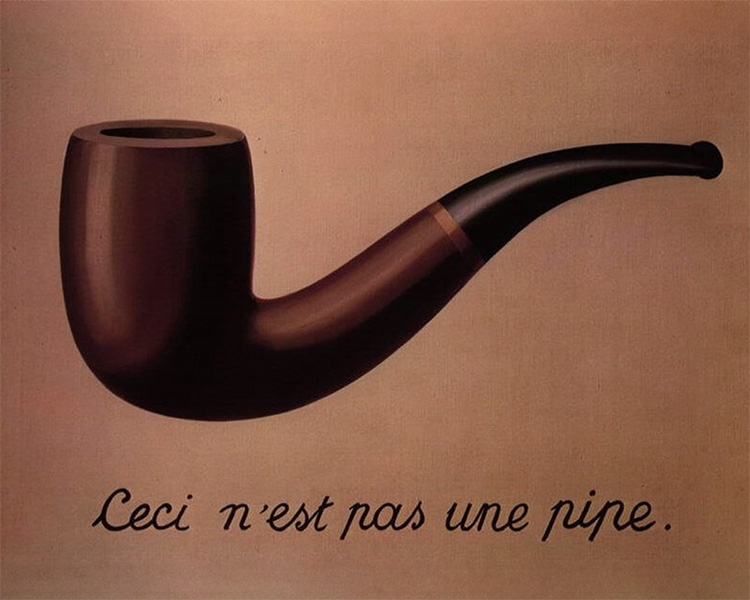
In “The Treachery of Images,” Magritte famously painted a pipe accompanied by the words “Ceci n’est pas une pipe” (“This is not a pipe”), inviting us to question the nature of representation and reality. Since this philosophical exploration is a recurring theme in Magritte’s oeuvre, the viewer is always invited to search deeper into the layers of meaning hidden within his seemingly simple compositions.
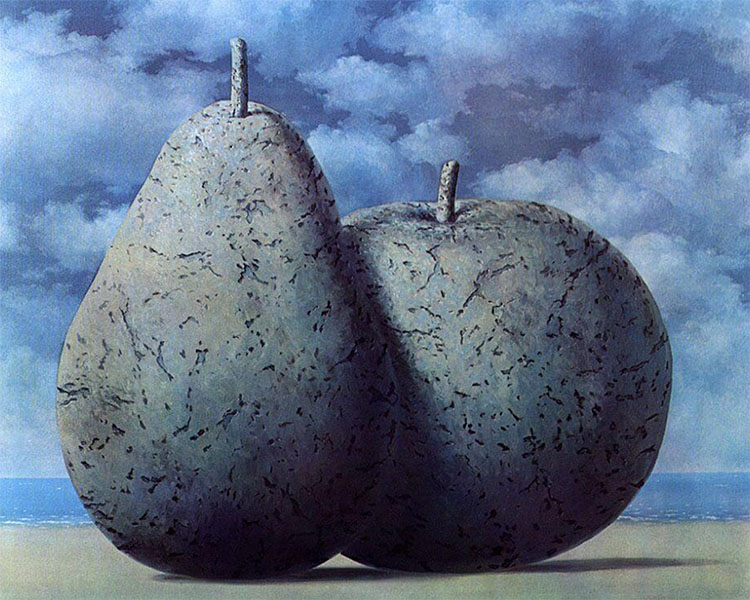
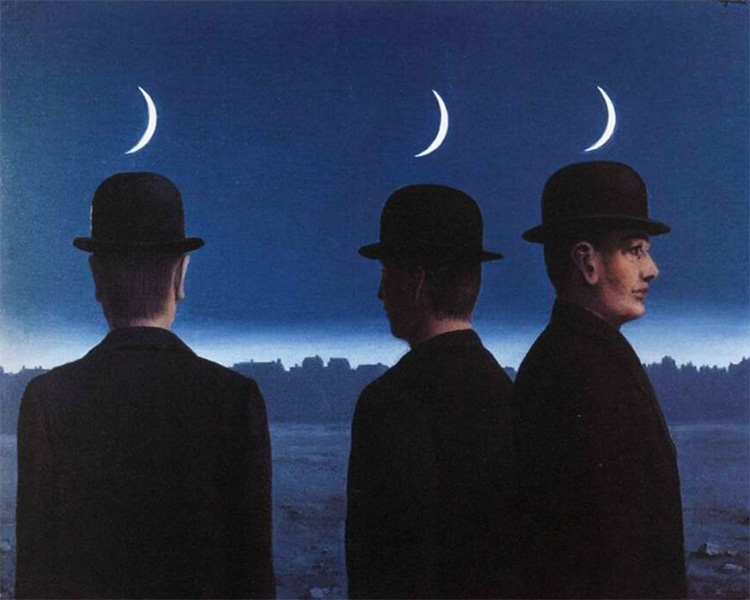
Moreover, Magritte’s ability to challenge conventional wisdom and spark imagination is what I find most inspiring about his work. His paintings encourage us to question the nature of reality and explore the boundless possibilities of the human imagination. Each artwork is a testament to Magritte’s unparalleled creativity and his enduring impact on the world of art.
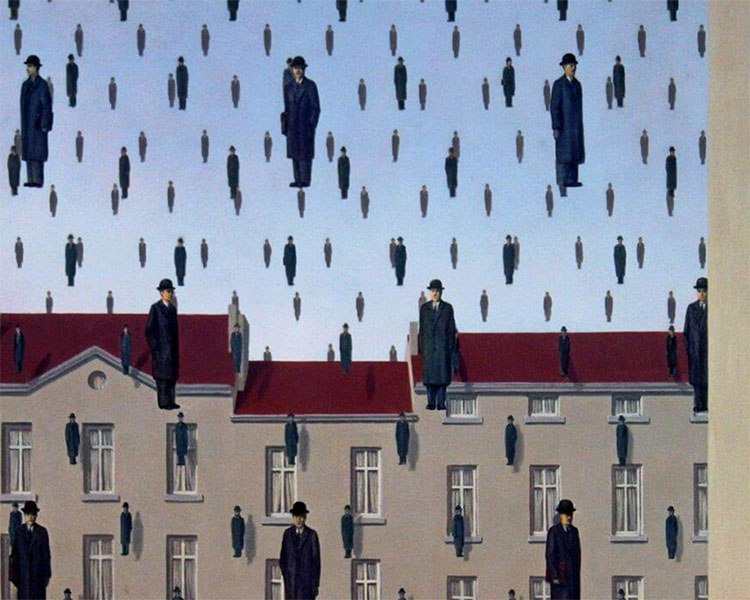
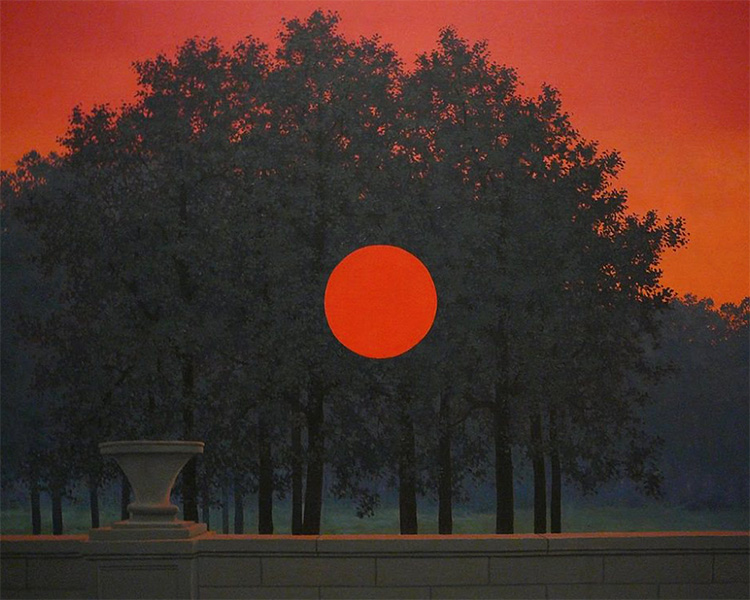
Since the very first time I stumbled upon Magritte’s surrealist masterpieces when I was a child I felt deeply captivated. Besides the enigmatic allure and thought-provoking scenes, I specially admire his ability to blend the familiar with the fantastical, inviting to a journey of introspection and discovery. His work is still undoubtedly a timeless source of inspiration for me.
